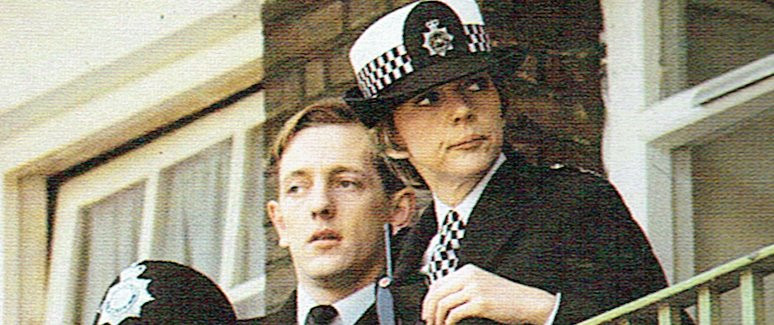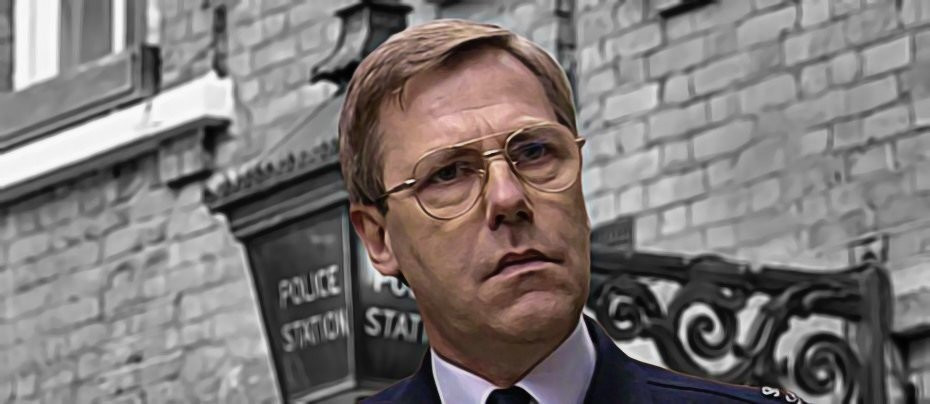
Larry Dann
Best remembered by a generation of television viewers as Sgt. Alec Peters in the hugely popular series The Bill, Larry Dann was one of the actors who helped form the backbone of an iconic and groundbreaking show which ran on ITV from 1984 to 2010.
A veteran of over 80 television and film productions as well as countless stage performances, Larry has written his autobiography, Oh, What A Lovely Memoir, which is totally absorbing, often hilarious, sometimes tragic, but always brutally honest.
Growing up in a strained atmosphere with two parents who didn’t show much love or affection to each other, Larry was offered some form of escape at seven years of age, when a former Army colleague of his father knocked on the front door of the large Victorian house they rented in Chiswick, and asked if Larry wanted to be in a film. It was the start of a career that would last more than fifty years.
In February 2024, I had the pleasure of speaking to Larry about writing his book and how digging up some sore memories from his childhood might have been painful but in some ways quite cathartic. “Honestly, I'd tell anyone 'If you've not written your book, even if you're not going to publish it, which I wasn't, it doesn't half sort your life out.’ I've learnt so much about myself!" Some revelations would also come as a surprise to his siblings. " I had three younger brothers (sadly one of them, John, died) and they would not know any of what I've written because they were born 9, 10 and 11 years after I was."
Larry’s father most definitely laid down the rules in the family home, even though he was missing for much of Larry’s early childhood. After the Second World War he was seconded to Berlin to work on the repatriation scheme and didn’t return until many months after VE Day. After that, he went to work in Harrods where he was employed six days a week, only having Sunday’s off. Despite the seemingly loveless situation at home, Larry’s parents stayed together, and the family expanded.
“My dad had absolutely no say in our names.” They were all chosen by Larry’s mother, Barbara Elizabeth Forbes, an attractive amateur dramatics star when she was younger. “I'm Laurence Anthony Forbes Dann, and all my brothers are AFD, Richard Andrew Forbes Dann, John Alistair Forbes Dann (and) Ian Ashley Forbes Dann, and all our names have been changed. I'm a Larry, Richard was Dick, John became Jaffa and Ian was Bub."
Richard is the only brother that Larry is still in contact with. Ian now lives in Thailand. "I don't have contact with him, sadly." They did make contact about eight or nine years ago. "I said, 'I'm going to be in Burma, I'll book another week and I'll go to Bangkok,' because he has a son I've never met. ‘I'll Put you up in a hotel and you can bring your son.’ Then, at the very last minute he said, 'I can't come because John (his son who was named after the brother who had died), has got to go to school.' When I get there, I find out that the schools in Thailand were on holidays."
Looking back now, it’s easy to see how Larry’s future career was mapped out from such a young age. He caught the acting bug from that first bit of casting in Adam and Evelyne which starred Stewart Granger and Jean Simmons. In his book, Larry writes: Everything changed when we were taken to the ‘set’. I was hit by the smell of the studio, which I can still grab from my memory now. It wasn’t long before Larry was back on a film set, this time appearing in Edward, My Son, a British film shot for MGM that starred Spencer Tracy and Deborah Kerr.
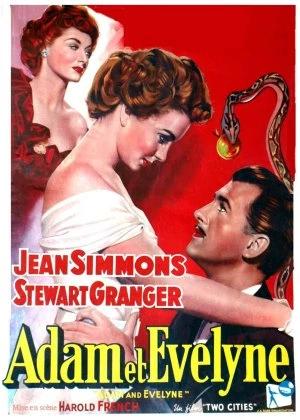
At eleven years of age, Larry made a monumental and extraordinarily brave decision that was to cement his path in life. His father had arranged for the two of them to go to Wimbledon High School where Larry would have an interview with the headmaster. This they duly did. But on the way home, Larry confessed that he didn’t want to go there and instead wanted to go to the Corona Academy of Stage Training and become an actor. His father told him he wouldn’t stand in his way, but if he insisted on going there, he’d have to pay his own tuition fees! “I thought at the time that was tough,” Larry said, “but I thank him for that because it taught me that if you want it, you go and get it.” Today, Larry is convinced that his father would have covered him. “I know he would!”
In 1952, with a promise of getting enough work to cover his fees, Larry began at Corona and also landed a part in Made in Heaven, a low-budget film with David Tomlinson and Petula Clark as the main stars, and Alfie Bass, Dora Bryan and Richard Wattis in supporting roles. Fortunately, the film parts kept coming in with the Norman Wisdom film Trouble in Store, The Million Pound Note starring Gregory Peck, The Black Night with Alan Ladd and An Alligator Called Daisy with Diana Dors. They were small roles, but Larry was certainly keeping good company. Then, at the age of 12, he made his first professional stage appearance at no less a venue than the Royal Opera House.
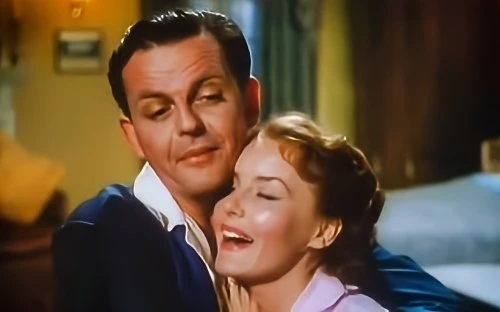
Television was now beginning to have an impact in the UK, thanks mainly to the public wanting to watch the 1953 Coronation of Queen Elizabeth, the first time such an historic event had been televised. Larry appeared in his first television play, James Warren’s The Teddy Bear. As was the norm in those early days of British television, no telerecording was made and so the play had to be performed live - twice. Once on Tuesday 3 November 1953, and again on the following Sunday. Television would soon become the medium that many people would turn to. Meanwhile, Larry’s education would continue. In 1956, he appeared in two episodes of Rex Milligan, a BBC children’s television series set in a public school, Sheldrake Grammar, which only ran for one series even though it was written by Jennings author Anthony Buckeridge. Among the cast were youngsters Anthony Valentine and Melvyn Hayes.
In 1960, Larry was asked to go to Granada Television to film a ‘dry run’ of a proposed new drama series. Under the working title of Florizel Street, Larry was to play the role of Dennis, the son of Elsie Tanner, played by Pat Pheonix. Of that first try-out only Phoenix and William Roach would become household soap-opera legends after a full series was commissioned under the title that we know and love today: Coronation Street. “I roomed with Bill Roach, but I only met him again once after that. I was driving my car up the North Circular Road when the car behind hit me. I got out my car to have a look at the damage and the other driver got out of his car and it was Bill!”

Also, at this time, Larry was touring in rep. "The first play I did was Master of Arts in which I had a very big part, which I never auditioned for - they just cast me. We rehearsed in the morning but couldn't rehearse in the afternoon because there was a matinée". In the evening the other actors in the company were performing Hamlet, "and the guy who was playing one of the masters in Master of Arts was actually playing Hamlet in the evening. God knows how he did it! I did this later when we went up to Leeds Playhouse and we did 'repertoire', which meant I had about 4 plays in my head, and during the week I'd do two of them so the audience could come and see a different play on a different night." During that time Larry admits that he broke the law! “At that time you had to be 16 before you could go into theatre without a chaperone. And I had my sixteenth birthday on the very last night.”
Larry stayed at Corona until he was 21, by which time he was teaching students in acting and mime and was also given the opportunity to direct. “You learn more by teaching than you do by doing it because you’re under pressure. And I knew what I wanted, and I had to work with the actors and communicate how we were going to get it. It’s fascinating and I love it to death.” Among the people who passed through Corona were Francesca Annis, Michele Dotrice, Frazer Hines, Patsy Kensit, Nicholas Lyndhurst, Richard O’Sullivan, Dennis Waterman and Ray Winstone.
In August 1962, Larry got a call to go to the Theatre Royal, Stratford, which was home to one of the icons of British theatre, director Joan Littlewood. Having established her Theatre Workshop in 1953, Littlewood had a reputation of that of a genuinely radical visionary who worked with an intense discipline and expected the same from her actors. Her methods became legend. "I knew of her reputation", said Larry, "and that her actors were instructed to use the Stanislavsky technique, a performance method where the actor immerses themselves into their character’s situation in order to help create a more believable presence. I couldn’t see myself working this way, but sure enough I was being invited to audition for Joan’s new musical."
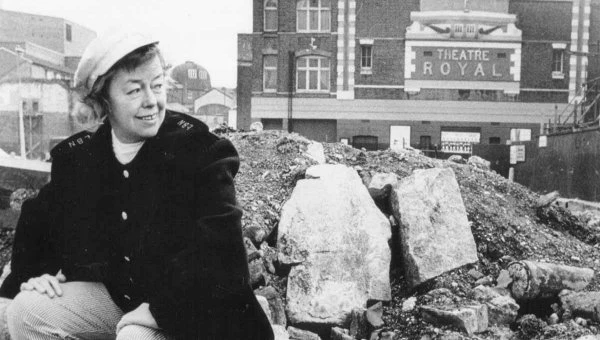
Larry was cast as Harry in What A Crazy World, which would also star Harry H. Corbett. But Corbett was only there for the first week. He was already under contract to the BBC to appear in Steptoe and Son. Taking his place in the musical was Glyn Edwards, who would later find fame in Minder. Other names in the company were Brian Murphy (George and Mildred) -who became a great friend of Larry's, Avis Bunnage (In Loving Memory), Cheryl Kennedy (Look, Mike Yarwood!) and Tony Robinson (Black Adder). The play was not at all liked by the critics and closed after six weeks. However, a film version, made as a vehicle for the popular singer Joe Brown and starring Marty Wilde, Susan Maughan and had Larry, Corbett and Bunnage reprising their stage roles, was far more successful and is today a wonderful piece of nostalgia that perfectly captures the mood of Britain on the eve of the so-called swinging sixties.
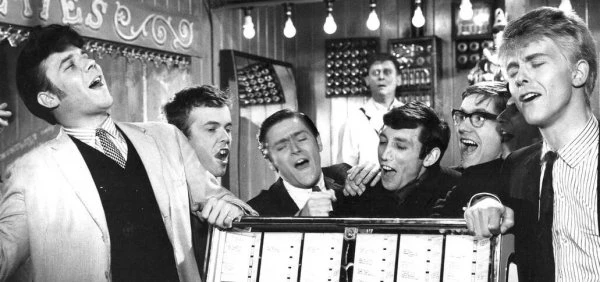
The next play that Larry did with Littlewood’s company was far more successful. Oh, What A Lovely War had a very uneasy start to life as explained in detail in Larry’s autobiography, but it opened to rave reviews. Eventually the cast travelled with it to Paris and then Broadway. “I had 14 years with Joan Littlewood which you just can’t buy.” But before Broadway, Joan thought Larry needed a lesson. “I was getting too big for my boots,” he readily admits. “We did four weeks in Philadelphia first and when we arrived we had to pick up four American actors. Two men, two girls. That was partly American Equity saying, 'you can come but we've got to have some of our people in it.' So Joan had to put them in. The two boys were given most of my bits. I was left with only three entrances and every time I was doing it, she was criticising me, 'you're not doing this or you're not doing that' and I was getting so down. and then on the first night on Broadway she said, 'take all your parts back."

In 1978, Larry made the last of four appearances in a Carry On film. The first, …Teacher, had been made in 1959 and one particular scene in which he appeared in ended up on the cutting room floor, the second …Behind was in 1975 and the third …England was in 1976. Yes, they were turned over that quickly. The fourth …Emmannuelle was also the last in the series for many years, and unsurprisingly so. When Larry first saw the script, he was aghast. “It was pure smut,” he said. "It was a stupid mistake to make it. Especially the way it was written originally. it wasn't double entendre it was single entendre. It was awful! I was so excited being offered the Jim Dale part and couldn't wait to get started. But they tried to compete with the Confessions films with Robin Askwith which they didn't have to. They were more at home with the McGill saucy postcard humour."
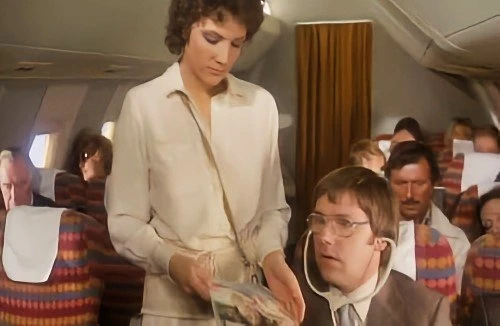
By the 1970s another avenue of television opened for Larry when he became the face of a multitude of tv commercials. It gave him the opportunity to work with directors of the likes of Ridley Scott. “The directors learnt their trade with commercials because they got 28 seconds to tell a story. I got to work with so many (directors) who went on to do many fine things and never asked me to join them.” But the adverts on their own were quite lucrative. “You got a basic fee for the day and on that basic fee, for every ten times it was shown, you’d get that fee again.” Larry also did a lot of voiceover work including the first voiceovers for both Capital Radio and LBC.
In 1984, Larry had a call from Thames Television and was asked if he’d do a scene for a new television series titled The Bill. The episode was called Funny Ol’ Business – Cops and Robbers. “I was being asked to come in and do a half-page of dialogue in the very first scene, playing a duty sergeant originally called Edwards, who was finishing his shift. A few weeks later, I got another call to say that Peter Cregeen would like me to come back, this time to do an episode called Death of a Cracksman. I was playing the same character, though he would now be called Sgt. Alec Peters, as the surname Edwards had been given to Colin Blumenau’s character Taffy.” 11 episodes were broadcast and Larry had filmed footage for a twelfth, The Chief Supers’ Party, when production was halted by a technicians strike. “This inadvertently left the door open for my return, should the series prove popular enough to warrant a second series”. It did, and Larry returned as a regular character, eventually appearing in 229 episodes. Although he feels as if he should have left earlier.

By the end of 1987, The Bill had become a major hit, regularly attracting over 15 million viewers. It achieved a number of awards throughout its time on air, ranging from a BAFTA to the Royal Television Society Award for Best Soap/Continuing Drama, where it beat both Coronation Street and Emmerdale onto the nominations list. The series was not without controversy. It was sometimes criticised for high levels of violence when it occupied a pre-watershed timeslot. Specific story lines also came under fire in the media, such as that involving a gay kiss in 2002. “When we first started, I spent some time with the police, down the cells etc. because all the cast had to learn what we were supposed to be doing.” The officers he met were very keen that they got it right. Larry says that those early hour-long episodes were full of fantastic writing. “My first two or three years on it were just terrific.” But once the format changed to two 30-minute episodes a week, the series became a bit like a soap opera. Possibly as a reaction to that, Larry and Roger Leach, who played Sergeant Tom Penny, decided they'd quite like to have a go at writing an episode.

At the time there was a strict policy by producer Michael Chapman that the actors should have no say in the direction or writing of the series under any circumstances. The pseudonym Victoria Hampton was created and 'her' scripts, three of them, were submitted and accepted by Chapman. They were duly paid and a director, Bill Brayne, was assigned to the episodes. But when Brayne wanted to speak to the writer to clarify one scene, he was told by script editor Barbara Cox (the only person Larry and Roger had taken into their confidence), who the writer really was. Bill promised to keep the secret. But it somehow got out. Chapman pulled the episodes, and they were never made. “I lost all respect for the man on that,” said Larry. Shortly after, Roger left the series and Larry says, with hindsight, he should have, as well.
"During the following year, I got very little to do, with Alec barely stepping foot outside the station. Then in the autumn of 1991, I got a letter from Michael Chapman, giving me three months’ notice that my contract would not be renewed. I thought he might have told me to my face, but I found out other actors were given the same treatment."
Larry was happy to return to the stage. "Television is okay but if it goes wrong, you can do it again. But with live you just get on with it. But theatre is there, it's on, it's of the moment, and that is so exciting." Nerves before going on wasn't a problem for Larry although he joked that, "I only had nerves in the theatre when I knew I was in something bloody awful!"

After 50 years in the business, Larry decided it was time to give something back by working with young filmmakers and new playwrights and by doing so he became an inspiration and a role model for aspiring artists. He decided to retire from acting around his 80th birthday and in his autobiography, he reveals that a friend of his helped him do so with a cameo role in a BBC series. “Though you’ll have to read the book to find out which one and how we did it!” he laughs.
Larry Dann’s commitment to his craft, unwavering dedication, and unyielding passion have set him apart, serving as an inspiration for those who dream of following in his footsteps. His body of work is exceptional and one that any actor would be proud of.
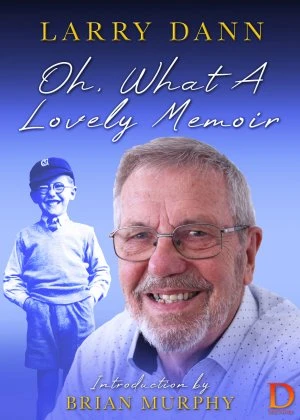
Larry’s autobiography Oh, What A Lovely Memoir is out now from devonfirebooks.com
Larry Dann was interviewed by Laurence Marcus on Friday 9 February 2024
Published on February 21st, 2024. Written by Laurence Marcus for Television Heaven.






